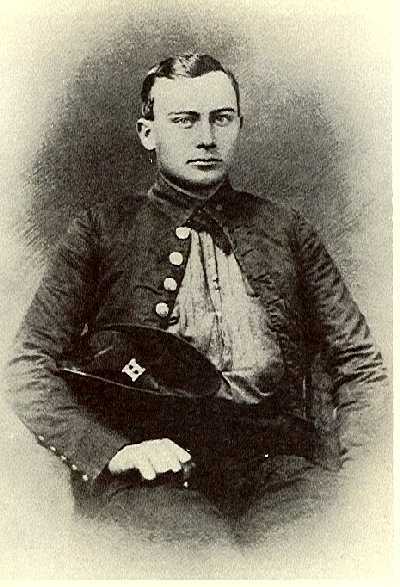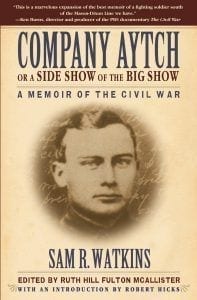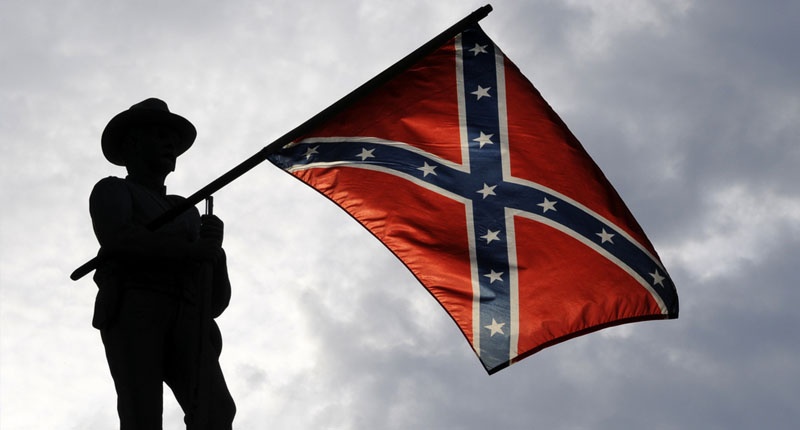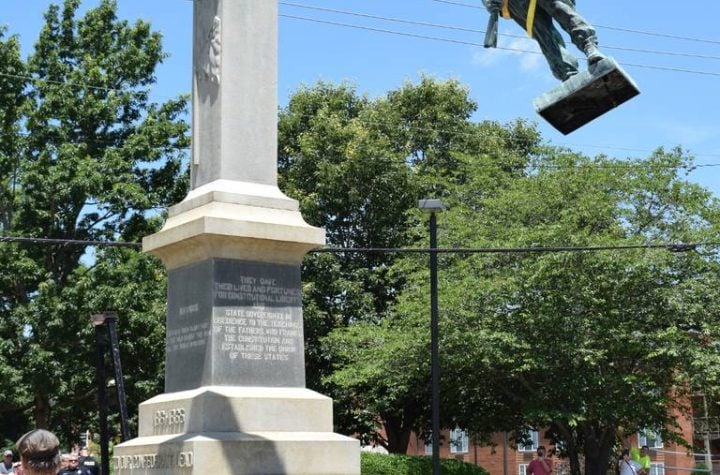
It was not easy going behind enemy lines to gather intelligence. It takes a bit of courage, cleverness, and wit to act when the opportunity arises. Sam Watson was a Confederate soldier serving under General Polk in June 1864 about the time of the Battle of Kennesaw Mountain in Georgia. One night he put those skills to good work to fool a bunch of Sherman’s Yankee soldiers.
Watson began his service at the very beginning of the Civil War and stayed in the fight until the very end. After the war, he wrote a book about his war experiences. One of the stories details how he was able to cross the enemy line, sneak into a Yankee camp, get within a few feet of Sherman’s headquarters, and observe and even talk to the Federals.
Of course, he would have to use some brilliant acting skills, too. He saw a group of soldiers coming to relieve the picket line. Acting as if he were just coming off duty, Watson turned to them and asked boldly, “Captain, what guard is this?”
He answered, “Nien bocht, you bet.” (That’s what it sounded like to him, anyway.) From that he figured this group was from a Dutch regiment, and so he moved on.
Next, he came upon an Irish regiment cooking a meal. By now he was worried that he may run into a guard demanding the verbal countersign, and be found out. So, he “… thought of the way that I had gotten it hundreds of times before in our army, when I wanted to slip the guard, and that was to get a gun, go to some cross street or conspicuous place, halt the officer, and get the countersign.”
As he stood near Sherman’s headquarters, he saw a courier leave his tent and mount his horse. As he approached, Watson boldly demands, “Halt! Who goes there?”
The courier responded, “A friend with the countersign,” and then came over to him and whispered in his ear “United.” With that one simple word, Watson said said he no longer felt like a prisoner in the enemy’s camp. For the next few hours he walked freely about the camp talking to the Union soldiers.
Some men approached him at one point:
“The person in command said, ‘Say, there! You sir; say, you, sir!’ Says I, Are you speaking to me?’ ‘Yes,’ very curtly and abruptly. ‘What regiment do you belong to?’ Says I, ‘One hundred and twenty-seven Illinois.’ ‘Well, sir, fall in line here; I am ordered to take up all stragglers. Fall in, fall in promptly!’ Says I, ‘I am instructed by General McCook to remain here and direct a courier to General Williams’ headquarters.’
Well, the Federals bought his answer and moved on.
It was about 3 AM when the assembly call rang out. Watson knew that in a few minutes the companies would fall in line for roll call. It was time to take what he had gathered and get out of the camp. He made it safely back to his own lines and made his report to Lt. General Polk.
Before he had entered the Federal camp that night to spy, Watson recalled in his book, “I felt like making my will.” But after successfully penetrating the camp, passing himself off as a Yankee soldier, and gaining good information, surely he was feeling confident that he had done a pretty good job – all in a day’s work.






More Stories
Sad Woke Charlottesville liberals Melt down infamous statue of Robert E Lee
NC Appeals Court rules for Town of Louisburg in removal of Confederate monument
The Confederate Flag History: Everything You Should Know